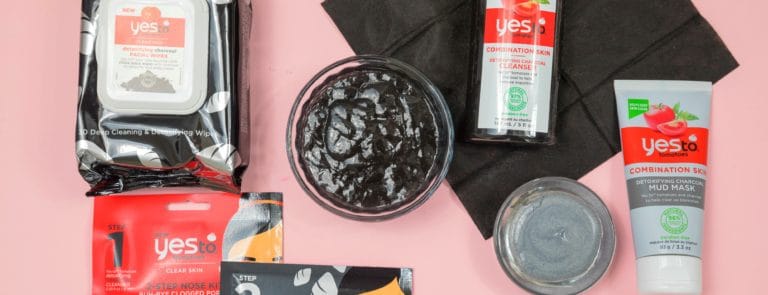10% off £35
Code:SAVE
Is your diet triggering your itchy skin?
.png)
Itchy skin conditions such as eczema can be caused by allergies or hives but could your diet be playing a part in you suffering from these conditions? Find out more about the link between diet and skin conditions here.
Itchy skin conditions like eczema are on the rise, but what you eat could be causing your skin to react.
Anyone who suffers from itchy skin knows how uncomfortable and frustrating the constant scratching can be, whether it’s due to a reaction like an allergy or hives, or a longer-term condition such as eczema.
The bad news is that some of our favourite foods could be to blame, but the good news is eating certain foods can help calm your itchy skin.
Why itchy skin is on the rise
Figures show that itchy skin conditions are becoming more common. Eczema affects up to 20% of children and up to 3% of all adults worldwide, and numbers are still increasing.1 In England alone, eczema diagnosis increased by 42% between 2001 and 2005.2 The exact reason for the rise is not clear, but researchers say it could be down to better awareness of the condition from both doctors and patients.3
Handpicked content: What is eczema and how can you treat it?
Psoriasis is also on the rise. A 2013 review published in the British Journal of Dermatology found that self-reporting of psoriasis increased from 4.8% in 1979-1980 to 11.4% in 2007-2008. This spike could be caused by lifestyle and environmental factors, such as smoking and a lack of physical activity.4
Is there a link to food allergies?
Many people with eczema also have allergic conditions, such as hay fever, asthma or food allergies.5
A review published in The Journal of Allergy and Clinical Immunology found that the likelihood of developing a sensitivity to certain foods was up to six times higher in people with eczema, compared with healthy individuals.6
Handpicked content: What are the causes of hay fever?
Food allergies don’t actually cause eczema but certain foods can be a trigger, and this would worsen symptoms. Research shows that avoiding certain dietary allergens can lead to improvements in signs and symptoms of eczema.7,8
If you’re suffering with itchy skin, it can be a good idea to avoid spicy foods, alcohol and caffeine as they can make itching worse.9
According to a 2016 review from researchers at The Ohio State University College of Medicine, ‘friendly’ bacteria may contribute to redressing the balance in gut flora that is missing in eczema-prone people.10
The same review indicated encouraging results with fish oil supplements and eczema, with patients experiencing improvements to everyday life compared to those taking a placebo.11 And in a 2014 review published in the Journal of the American Academy of Dermatology, researchers found that fish oil supplements can help people with psoriasis. It’s thought that the omega-3 fatty acids in fish oil have an anti-inflammatory effect on the skin.12
In February 2018, a large-scale research report from Imperial College London found that probiotic supplementation had a positive impact on eczema risk in children.13
- Nutten S. Atopic dermatitis: global epidemiology and risk factors. Available from: https://www.ncbi.nlm.nih.gov/pubmed/25925336
- Simpson CR, et al. Trends in the epidemiology and prescribing of medication for eczema in England. Available from: https://www.ncbi.nlm.nih.gov/pmc/articles/PMC2746851/
- As Source 2
- Danielsen K, et al. Is the prevalence of psoriasis increasing? /a 30-year follow-up of a population-based cohort. Available from: https://www.ncbi.nlm.nih.gov/pubmed/23374051
- NHS Choices. Atopic eczema. Available from: https://www.nhs.uk/conditions/atopic-eczema/
- Tsakok T, et al. Does atopic dermatitis cause food allergy? A systematic review. Available from: http://www.jacionline.org/article/S0091-6749(15)03165-6/abstract
- Allergy UK. Eczema/dermatitis. Available from: https://www.allergyuk.org/information-and-advice/conditions-and-symptoms/35-eczema-dermatitis
- Katta R and Schlichte M. Diet and Dermatitis: Food Triggers. Available from: https://www.ncbi.nlm.nih.gov/pmc/articles/PMC3970830/
- NHS Choices. Itchy skin. Available from: https://www.nhs.uk/conditions/itchy-skin/
- Schlichte, M, Vandersall A and Katta R. Diet and eczema: a review of dietary supplements for the treatment of atopic dermatitis. Available from: https://www.ncbi.nlm.nih.gov/pmc/articles/PMC5006549/
- As Source 10
- Millsop JW, et al. Diet and Psoriasis: Part 3. Role of Nutritional Supplements. Available from: https://www.ncbi.nlm.nih.gov/pmc/articles/PMC4134971/
- Garcia-Larsen V, et al. Diet during pregnancy and infancy and risk of allergic or autoimmune disease: A systematic review and meta-analysis. Available from: http://journals.plos.org/plosmedicine/article?id=10.1371/journal.pmed.1002507
Advice is for information only and should not replace medical care. Please check with your GP before trying any remedies.
Related Articles
Shop by wellness goal
Sign up for exclusive offers
Plus, get expert advice to support your health & wellness straight to your inbox when you sign up to Holland & Barrett emails.
Read our
privacy policy














